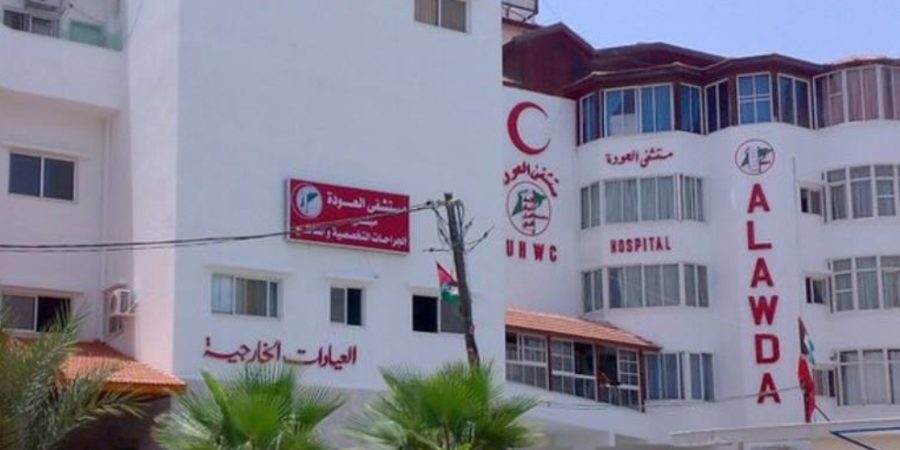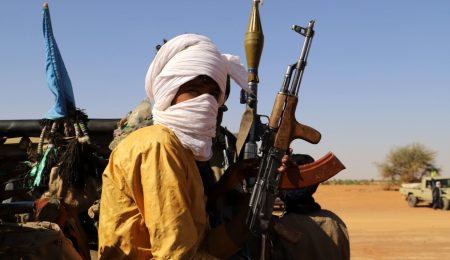In the early hours of a May morning, the sound of gunfire crackled through a hushed voice note from inside al-Awda hospital, once the final lifeline for healthcare in northern Gaza.
“They are shooting a lot. The tank has sieged the hospital,” said hospital director Dr Mohammed Salha, his voice low as fighting erupted outside the facility’s walls.
That voice note marked the beginning of the end for the NGO-run hospital, which had remained partially operational through months of conflict until it could no longer.
Just one week later, the hospital was declared out of service. Medical staff, including Dr Salha, were ordered to evacuate under fire, carrying patients on stretchers and in wheelchairs through rubble and bombed-out streets. With fewer than half of Gaza’s hospitals now functional and those only barely international organisations such as the WHO and British Red Cross are warning that Gaza’s health system is “on the brink of collapse” and “being systematically dismantled.
Located in Jabalia, al-Awda was a vital medical centre supported by international organisations and the EU. It saw dozens of war casualties each day, often treating them with limited resources and under bombardment. Dr Salha sent regular voice messages to the BBC during the hospital’s final days, detailing the mounting crisis as Israeli ground operations intensified around it.
On one harrowing day, six bodies arrived at al-Awda three of them were Dr Salha’s own relatives, including his young nephew and two nieces. Their home had been struck in an air raid while they slept. Despite his grief, Dr Salha returned to work after briefly locking himself in his office to cry. At the same time, reports emerged from the UN about the growing death toll of children across Gaza, calling it a devastating reminder of the war’s toll on the most vulnerable.
By 18 May, shelling had damaged the hospital’s infrastructure, shattering windows, destroying water and gas lines, and knocking out power. Drone footage and photos as verified confirmed damage to the building and surrounding grounds. Pregnant women stopped coming, the risk was too high. Staff feared women might soon give birth in the streets. “If al-Awda shuts, there is nothing left in the north,” Salha said.
Other nearby hospitals, like the Indonesian Hospital and Kamal Adwan, were also declared out of service due to repeated strikes. Al-Awda began running low on oxygen, fuel, and basic medicines. Attempts to coordinate resupply or patient transfers were hampered by gunfire and inaccessible roads. Ambulances were reportedly shot at by drones, and communications grew increasingly unreliable.
By 21 May, Israeli tanks and drones had completely encircled the hospital. “We hear shooting from the tanks, it’s very close,” Salha reported. Later that night, explosions rocked the building, hitting the third floor and sparking a fire that spread through emergency tents and storage areas. Supplies, medications, and fuel were destroyed, with the fire threatening to trigger a catastrophic explosion.
The WHO confirmed that its triage tents were destroyed and that it had to suspend a planned mission to the hospital. Partner NGOs like ActionAid expressed horror at the destruction.
Meanwhile, the Israeli military claimed it was targeting nearby “terror infrastructure” and said it had enabled local firefighting efforts though denied striking the hospital directly.
On 23 May, three hospital staff were injured by shrapnel after further shelling. Relief International confirmed the emergency room had been hit. Soon after, the WHO helped coordinate partial evacuations, risking gunfire to move staff and patients.
Salha’s injured sister-in-law, who had lost her children in an earlier strike, was among those evacuated for scans.
Eventually, Salha and the remaining staff were ordered to leave completely. He said the Israeli military refused his plea to leave behind a skeleton team for patients, instead issuing a stark ultimatum: evacuate or face death. The IDF denies making such a threat and insists the evacuation was facilitated safely and voluntarily.
Yet video evidence shows patients being carried hundreds of metres on foot over rubble-strewn roads to distant ambulances.
By nightfall, al-Awda, once the last functioning hospital in northern Gaza, stood empty.
Aftermath and Reflection- On 17 June, Dr Salha was granted permission to return to the site to salvage remaining supplies. The hospital, he said, was still standing, but heavily damaged. Its water tanks, repaired during an earlier ceasefire, were now destroyed again. Windows and ceilings had collapsed. Yet the memory of what the hospital represented as a refuge of care amid chaos remains.
“We hope the war finishes soon so we can go back,” he said.
The WHO calls al-Awda’s closure a critical loss “With its shutdown, there is no remaining functional hospital in North Gaza.”
Gaza’s already-crippled health system, battered by 20 months of war, is now teetering at the edge one hospital, one patient, one voice note at a time.
Erizia Rubyjeana
Follow us on:



